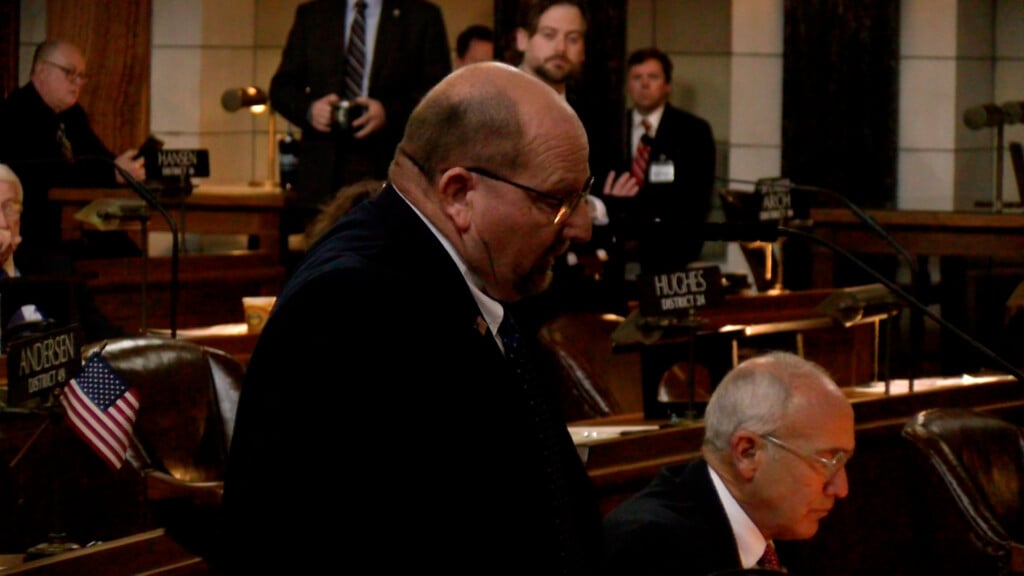‘It will save lives’: Nebraska man disappointed with Pillen’s veto of needle exchange bill
LINCOLN, Neb. (KLKN) – A Nebraskan is speaking out against Gov. Jim Pillen’s veto of a bill that would provide clean needles to drug users.
Sen. Megan Hunt’s bill passed in the Legislature, but Pillen said he vetoed it as soon as it hit his desk.
Legislative Bill 307 would allow pharmacies and local public health programs to offer Syringe Service Programs.
They would provide safe disposal of used needles and syringes and hand out new, clean ones.
The goal is to stop the spread of diseases like HIV.
Mark Welsch of Omaha has a relative who deals with addiction.
He said that’s part of the reason he’s in support of the bill.
“My family member that is a heroin addict had told me a couple years ago that these kind of needle exchanges were saving people’s lives in other states where they’re allowed,” Welsch said.
The pharmacy or health program will also hand out educational materials and give referrals to mental health and substance abuse treatment.
Welsch believes that will make the biggest difference.
“People that are addicted to heroin and other drugs are going to use drugs whether they have clean needles or dirty needles,” he said. “It will save lives by putting these drug addicts in touch with health professionals as they get their clean needles. That will give them a chance to be talked with about how they can get off that addiction.”
But in a column on Tuesday, Pillen said the bill would enable drug users.
“If that sounds crazy to you, let me assure you that you’re not alone,” he wrote. “I vetoed LB 307 as soon as it reached my desk.”
The bill has no age minimum for who can receive needles, which Pillen said encourages minors to abuse dangerous drugs.
But Hunt said that Pillen is fear-mongering and that no medical professional will hand out syringes to young children.
After his veto, Hunt released a statement saying people who use these programs are up to five times more likely to receive treatment.
“Governor Pillen seems to have a fundamental misunderstanding of the function of SSPs, which serve as a doorway to accessing treatment,” she said. “The relationships, resources, and referrals people obtain from an SSP are often the first opportunity for treatment they receive.”
Hunt has filed to override the veto.
She will need 30 votes. The bill got exactly that many on its final reading, though a dozen senators did not vote.



